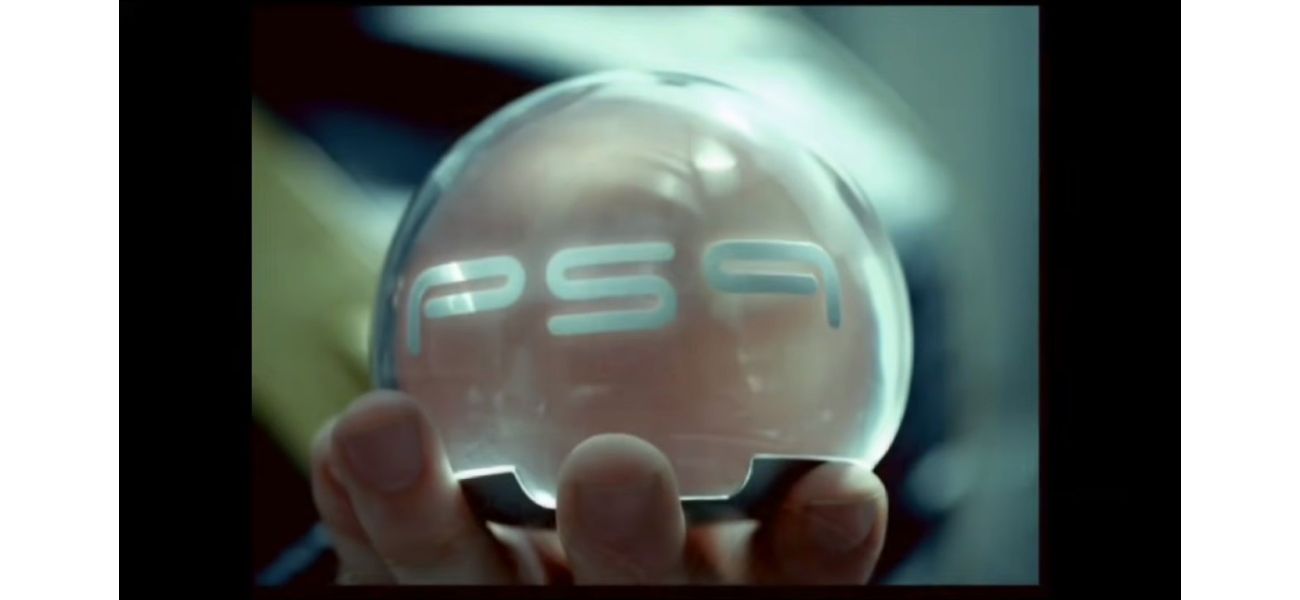Readers share their thoughts on the rumored PlayStation 6, the Zelda timeline debate, and speculation about Rocksteady's upcoming game.
Xbox management change needed, reader questions Sony's Fairgame$.
September 3rd 2024.

It's hard to believe that the release of the PS9 is just around the corner. The recent discussions on the Tuesday letters page have been focused on the need for a management change at Xbox. One reader even raised the question of what happened to Sony's Fairgame$, which has been a hot topic lately. If you want to join in on the conversation, feel free to email us your thoughts.
But let's take a step back and ask ourselves, what's the rush? Isn't it still a bit crazy to be talking about a PlayStation 6 so soon? I mean, what exactly would it offer that's significantly better? Sure, perhaps the graphics would be 20% more advanced, but is that really worth investing in a whole new generation? We haven't even fully explored all the capabilities of the PlayStation 5 yet, and now there's talk of a PS5 Pro coming out this year. It's no wonder people are hesitant to spend all that money again.
But why is this even happening? Even if the rumors about the PlayStation 6 are false, Microsoft has already announced their next-gen Xbox, which will likely be released within the next two years. As someone who has never owned a Nintendo console, I have to admit, they seem to be the only ones with common sense in this industry.
I can understand the need for a new Switch, but a new Xbox or PlayStation? It just doesn't make sense. Maybe I'll end up giving my money to Nintendo after all, especially if they continue to have good third party support.
Now, let's talk about Phil Spencer. I hate to say this, but if he wasn't a multi-millionaire executive who's been destroying the games industry, I would feel bad for him. I just don't understand why he still has a job. It's clear that Satya Nadella, the CEO of Microsoft, doesn't know much about video games, but surely he's a competent businessman who can see that Spencer's strategies never seem to pan out.
Spencer has been in charge of Xbox for a decade now, and despite always saying the right things, things always seem to get worse under his leadership. It's gotten to the point where they've practically run themselves out of the hardware business. And let's not forget about his team of cronies. The entire Xbox management needs to be replaced with someone who is simply good at business, not someone trying to be your gaming buddy or who played Destiny once but didn't like it.
I know this might sound like it would stifle creativity, but just look at Nintendo. They have a boring accountant in charge, and their games continue to be successful. So maybe that's exactly what we need.
On to another topic, I find it amusing how little Nintendo seems to care about canon or storytelling in general when it comes to Zelda. They even acknowledged the whole timeline thing, but they're not afraid to retcon it whenever they feel like it, with no regrets.
But let's talk about the latest installment, Tears Of The Kingdom. While I agree with Nintendo's attitude towards storytelling, I have to say that this game doesn't really feel like a sequel to Breath Of The Wild, even though it's supposed to be. None of the characters seem to recognize Link, there's hardly any mention of previous events, and aside from reusing the same map, there's not much connection. It just feels a bit odd and distracting.
Moving on to a different topic, the increasing development costs in the gaming industry have been a concern for many. With wages for employees being the main driver, it's clear that something needs to change. How can developers continue to make great games in less time and with fewer resources, while still turning a profit? Especially when the gaming market growth has plateaued, and existing gamers are not willing to pay more for games?
It's no surprise that many companies will resort to playing it safe and only making what's guaranteed to sell. But this also means taking fewer risks and potentially hindering creativity. Nintendo may be one of the few companies that will be okay, as their games tend to sell millions of copies. But in general, it's a challenging time to convince people of the value of games, especially during an economic downturn.
Speaking of games, I recently finished playing Bioshock Remastered on the Steam Deck, and it was a phenomenal experience. I don't think there's a modern equivalent to this game. And just a pro tip, if you're experiencing any crashes, try turning off the Performance Overlay on the Deck.
Finally, let's talk about Rocksteady. It's no secret that they've been struggling financially, with a $200 million deficit and layoffs. But I hope that their new game is a single-player experience that plays to their strengths. Suicide Squad was a disaster in every way, and I think we're all better off just forgetting about it, including its connections to the Arkham series.
On a positive note, I'm glad to hear that their VR game is receiving praise. However, this also means that other companies can make similar games, which doesn't bode well for Rocksteady.
In conclusion, I don't see the benefits of a new generation of consoles, or even Pro versions that solely focus on power. The returns on increased performance are diminishing, and it's becoming more challenging to develop games for multiple demographics. It may make more sense for companies to focus on smaller, quieter, and more environmentally friendly consoles, rather than investing in more powerful ones. Let's not forget that there's not much profit in console sales, so it's understandable why Microsoft would want to hit the "reset" button. But overall, it's a risky move that may not benefit anyone in the current state of the gaming industry.
It's hard to believe, but the launch of the PS9 is coming up faster than we expected. The recent letters page on Tuesday has sparked some interesting discussions about the future of gaming. One reader raised a valid question about the disappearance of Sony's Fairgame$. If you want to join in on the conversation, feel free to send us an email at [email address].
But let's take a step back for a moment. Is there really a need for a PlayStation 6 so soon? I mean, what could it possibly offer that's significantly better than the current generation? Sure, the graphics might get a slight upgrade, but is that really worth investing in a whole new console? I don't think so. We haven't even had enough time to fully explore the capabilities of the PlayStation 5, and now there's talk of a PS6 already? Plus, with the rumored release of the PS5 Pro this year, it's hard to justify spending all that money again.
So why is this happening? Even if the PS6 rumors turn out to be false, Microsoft has already announced their next-gen Xbox, which means it's likely only a couple of years away. As someone who has never owned a Nintendo console, I can't help but admire their sensible approach to the gaming industry. A new Switch? Sure, that makes sense. But a new Xbox or PlayStation? Not at all. Maybe I'll have to reconsider and give Nintendo my money after all, especially if they continue to have strong third-party support.
Speaking of management, let's talk about Phil Spencer. Now, I don't want to sound too harsh, but I can't help but wonder why he still has a job as a multi-millionaire executive. It's clear that he's been in charge of Xbox for a decade now, and despite his constant talk about doing the right thing, things always seem to go downhill. It's gotten to the point where Xbox is practically running itself out of the hardware business. I don't have much faith in his team either. What we need is a new management regime for Xbox, not someone who wants to be everyone's gaming buddy and has only played Destiny once.
I find it amusing how little Nintendo cares about canon or storytelling in their Zelda games. They seem to retcon things whenever it suits them, without any regard for consistency. However, even though I agree with this approach, I have to say that Tears Of The Kingdom doesn't feel like a true sequel to Breath Of The Wild, despite being marketed as one. None of the characters seem to recognize Link, there's hardly any references to past events, and aside from reusing the same map, there's barely any connection. It's all a bit odd and off-putting.
Now let's switch gears and talk about the increasing costs of game development. It's no secret that employee wages are the main driving force behind these costs, and it's a real challenge for developers to create great games in less time and with fewer people, all while turning a profit. The gaming market growth has also stagnated, and existing gamers aren't too keen on paying more for games. As a result, we'll likely see less risks being taken and a focus on guaranteed sellers. Nintendo may be one of the few companies that can weather this storm, as their games almost always sell over 10 million copies. But overall, convincing people of the value of games in a struggling economy is the biggest hurdle right now.
As for Rocksteady, it's unfortunate that they're losing staff, but they should consider themselves lucky that they're not shutting down entirely. Losing $200 million is no small feat, especially when thousands of people are being laid off for seemingly no good reason. Let's hope that their next game is a single-player experience that plays to their strengths, unlike the disaster that was Suicide Squad. I'm surprised to hear that their VR game is well-received, but that may not bode well for Rocksteady if Warner realizes that other companies can produce similar games just as well.
Finally, let's talk about the future of consoles. As a consumer, I'm struggling to understand the benefits of a new generation of consoles, or even Pro versions that focus on power. Think about it - the returns on increased performance are diminishing, so more people are sticking with their current consoles. This will only increase with a new generation, making console development even harder. The increased fidelity also contributes to longer development times and higher costs for AAA games. It's a cycle that doesn't seem to benefit anyone at the moment. Sure, Microsoft might want to hit the "reset" button, but there's not much profit in console sales. I could see the appeal of smaller, quieter, more eco-friendly, or cheaper-to-develop consoles, but beyond that, I'm not convinced that more powerful consoles are necessary right now.
But let's take a step back and ask ourselves, what's the rush? Isn't it still a bit crazy to be talking about a PlayStation 6 so soon? I mean, what exactly would it offer that's significantly better? Sure, perhaps the graphics would be 20% more advanced, but is that really worth investing in a whole new generation? We haven't even fully explored all the capabilities of the PlayStation 5 yet, and now there's talk of a PS5 Pro coming out this year. It's no wonder people are hesitant to spend all that money again.
But why is this even happening? Even if the rumors about the PlayStation 6 are false, Microsoft has already announced their next-gen Xbox, which will likely be released within the next two years. As someone who has never owned a Nintendo console, I have to admit, they seem to be the only ones with common sense in this industry.
I can understand the need for a new Switch, but a new Xbox or PlayStation? It just doesn't make sense. Maybe I'll end up giving my money to Nintendo after all, especially if they continue to have good third party support.
Now, let's talk about Phil Spencer. I hate to say this, but if he wasn't a multi-millionaire executive who's been destroying the games industry, I would feel bad for him. I just don't understand why he still has a job. It's clear that Satya Nadella, the CEO of Microsoft, doesn't know much about video games, but surely he's a competent businessman who can see that Spencer's strategies never seem to pan out.
Spencer has been in charge of Xbox for a decade now, and despite always saying the right things, things always seem to get worse under his leadership. It's gotten to the point where they've practically run themselves out of the hardware business. And let's not forget about his team of cronies. The entire Xbox management needs to be replaced with someone who is simply good at business, not someone trying to be your gaming buddy or who played Destiny once but didn't like it.
I know this might sound like it would stifle creativity, but just look at Nintendo. They have a boring accountant in charge, and their games continue to be successful. So maybe that's exactly what we need.
On to another topic, I find it amusing how little Nintendo seems to care about canon or storytelling in general when it comes to Zelda. They even acknowledged the whole timeline thing, but they're not afraid to retcon it whenever they feel like it, with no regrets.
But let's talk about the latest installment, Tears Of The Kingdom. While I agree with Nintendo's attitude towards storytelling, I have to say that this game doesn't really feel like a sequel to Breath Of The Wild, even though it's supposed to be. None of the characters seem to recognize Link, there's hardly any mention of previous events, and aside from reusing the same map, there's not much connection. It just feels a bit odd and distracting.
Moving on to a different topic, the increasing development costs in the gaming industry have been a concern for many. With wages for employees being the main driver, it's clear that something needs to change. How can developers continue to make great games in less time and with fewer resources, while still turning a profit? Especially when the gaming market growth has plateaued, and existing gamers are not willing to pay more for games?
It's no surprise that many companies will resort to playing it safe and only making what's guaranteed to sell. But this also means taking fewer risks and potentially hindering creativity. Nintendo may be one of the few companies that will be okay, as their games tend to sell millions of copies. But in general, it's a challenging time to convince people of the value of games, especially during an economic downturn.
Speaking of games, I recently finished playing Bioshock Remastered on the Steam Deck, and it was a phenomenal experience. I don't think there's a modern equivalent to this game. And just a pro tip, if you're experiencing any crashes, try turning off the Performance Overlay on the Deck.
Finally, let's talk about Rocksteady. It's no secret that they've been struggling financially, with a $200 million deficit and layoffs. But I hope that their new game is a single-player experience that plays to their strengths. Suicide Squad was a disaster in every way, and I think we're all better off just forgetting about it, including its connections to the Arkham series.
On a positive note, I'm glad to hear that their VR game is receiving praise. However, this also means that other companies can make similar games, which doesn't bode well for Rocksteady.
In conclusion, I don't see the benefits of a new generation of consoles, or even Pro versions that solely focus on power. The returns on increased performance are diminishing, and it's becoming more challenging to develop games for multiple demographics. It may make more sense for companies to focus on smaller, quieter, and more environmentally friendly consoles, rather than investing in more powerful ones. Let's not forget that there's not much profit in console sales, so it's understandable why Microsoft would want to hit the "reset" button. But overall, it's a risky move that may not benefit anyone in the current state of the gaming industry.
It's hard to believe, but the launch of the PS9 is coming up faster than we expected. The recent letters page on Tuesday has sparked some interesting discussions about the future of gaming. One reader raised a valid question about the disappearance of Sony's Fairgame$. If you want to join in on the conversation, feel free to send us an email at [email address].
But let's take a step back for a moment. Is there really a need for a PlayStation 6 so soon? I mean, what could it possibly offer that's significantly better than the current generation? Sure, the graphics might get a slight upgrade, but is that really worth investing in a whole new console? I don't think so. We haven't even had enough time to fully explore the capabilities of the PlayStation 5, and now there's talk of a PS6 already? Plus, with the rumored release of the PS5 Pro this year, it's hard to justify spending all that money again.
So why is this happening? Even if the PS6 rumors turn out to be false, Microsoft has already announced their next-gen Xbox, which means it's likely only a couple of years away. As someone who has never owned a Nintendo console, I can't help but admire their sensible approach to the gaming industry. A new Switch? Sure, that makes sense. But a new Xbox or PlayStation? Not at all. Maybe I'll have to reconsider and give Nintendo my money after all, especially if they continue to have strong third-party support.
Speaking of management, let's talk about Phil Spencer. Now, I don't want to sound too harsh, but I can't help but wonder why he still has a job as a multi-millionaire executive. It's clear that he's been in charge of Xbox for a decade now, and despite his constant talk about doing the right thing, things always seem to go downhill. It's gotten to the point where Xbox is practically running itself out of the hardware business. I don't have much faith in his team either. What we need is a new management regime for Xbox, not someone who wants to be everyone's gaming buddy and has only played Destiny once.
I find it amusing how little Nintendo cares about canon or storytelling in their Zelda games. They seem to retcon things whenever it suits them, without any regard for consistency. However, even though I agree with this approach, I have to say that Tears Of The Kingdom doesn't feel like a true sequel to Breath Of The Wild, despite being marketed as one. None of the characters seem to recognize Link, there's hardly any references to past events, and aside from reusing the same map, there's barely any connection. It's all a bit odd and off-putting.
Now let's switch gears and talk about the increasing costs of game development. It's no secret that employee wages are the main driving force behind these costs, and it's a real challenge for developers to create great games in less time and with fewer people, all while turning a profit. The gaming market growth has also stagnated, and existing gamers aren't too keen on paying more for games. As a result, we'll likely see less risks being taken and a focus on guaranteed sellers. Nintendo may be one of the few companies that can weather this storm, as their games almost always sell over 10 million copies. But overall, convincing people of the value of games in a struggling economy is the biggest hurdle right now.
As for Rocksteady, it's unfortunate that they're losing staff, but they should consider themselves lucky that they're not shutting down entirely. Losing $200 million is no small feat, especially when thousands of people are being laid off for seemingly no good reason. Let's hope that their next game is a single-player experience that plays to their strengths, unlike the disaster that was Suicide Squad. I'm surprised to hear that their VR game is well-received, but that may not bode well for Rocksteady if Warner realizes that other companies can produce similar games just as well.
Finally, let's talk about the future of consoles. As a consumer, I'm struggling to understand the benefits of a new generation of consoles, or even Pro versions that focus on power. Think about it - the returns on increased performance are diminishing, so more people are sticking with their current consoles. This will only increase with a new generation, making console development even harder. The increased fidelity also contributes to longer development times and higher costs for AAA games. It's a cycle that doesn't seem to benefit anyone at the moment. Sure, Microsoft might want to hit the "reset" button, but there's not much profit in console sales. I could see the appeal of smaller, quieter, more eco-friendly, or cheaper-to-develop consoles, but beyond that, I'm not convinced that more powerful consoles are necessary right now.
[This article has been trending online recently and has been generated with AI. Your feed is customized.]
[Generative AI is experimental.]
0
0
Submit Comment





